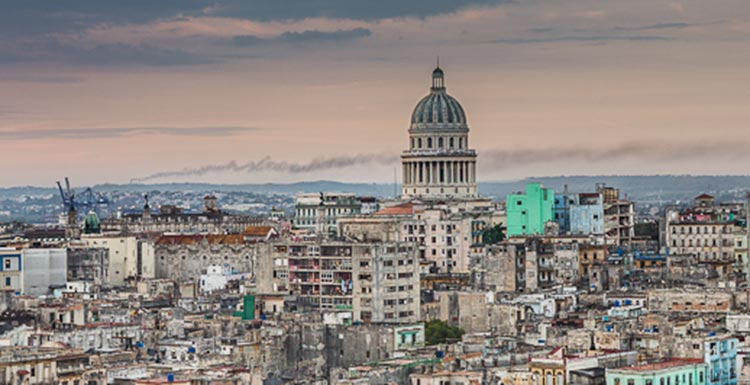
Cuba’s ongoing inspiration: an eyewitness account
My recent trip to Cuba was without a doubt one of the best experiences of my life. It was my first visit to Cuba and I went as part of a May Day Brigade of young trade unionists with the Cuba Solidarity Campaign.
We stayed on a camp, which was basic but perfectly adequate. We rose before dawn to take part in agricultural work with our Cuban comrades. The US blockade on the island limits the supply of basic machinery essential to modern agricultural work on a mass scale. In the absence of the latest farming technology, the job has to be done manually where many hands make light work.
Despite this obstacle, the orange nursery we visited was exemplary as were the plots growing essential crops like cassava, beans, tomatoes and plantain. Although the food was simple and dictated by whatever is in season, it was delicious for having being grown organically and locally. After a week of eating real food free from processed junk, I felt much healthier.
The power cuts and water shortages we experienced are evidence of the problems that the blockade still causes in daily life. In camp we were without water for showers for three days. Luckily the Brazilian delegation had brought the plumbing parts to fix the water tank!
This reminds us of the importance of solidarity, as without their efforts it would have been extremely difficult for the camp to obtain the necessary working parts for repair.
I took with me an electronic cigarette, solar powered phone charger and portable speakers. These are fairly commonplace items for us in Britain, but to the Cubans they were the first they had seen of this type in the flesh. They were completely aware of the technology and knew what they were straight away, but the blockade meant that these products were totally unobtainable.
Traveling around the country I saw countless billboards that demanded “cese el bloqueo” (End the Blockade) which referred to it as a form of genocide, testament to the harm it has caused the nation. The Cubans are people fiercely proud of their politics and not afraid show it.
On May 1, I was honored to enjoy a prime position at the extraordinary May Day Rally Celebrations in Havana. We were just rows away from Cuban President, Raul Castro, Venezuelan President, Nicolas Maduro and all of the Cuban Five, five men jailed unjustly for over a decade in the US. The Cuban trade union leader Ulises Guilarte, gave a rousing speech on the importance of maintaining solidarity with all workers across the world. Together we are stronger and can overcome anything.
The rain was heavy but the atmosphere was amazing. This was the first May Day since the Cuban Five were all freed. The joy and excitement in the air was palpable. The passion of all the participants was undeniable and it is the most inspirational rally that I have ever attended.
The next day we attended the International Meeting of Solidarity with Cuba in Havana. It was organized by the Confederation of Cuban Workers (Confederación de Trabajadores de Cuba) and a fascinating insight into Cuban trade unionism. Gerardo Hernandez, one of the Five, spoke at the conference with Cuba. I feel immensely lucky to have seen him speak. It was an emotional day for all, celebrating the victory of the Five’s return to their homeland after 16 unjust years in prison.
I work for an educational publisher in the UK so I was particularly excited when we had a chance to visit a primary school near Playa Giron. I was extremely impressed with the facilities there. The class sizes were small, less than ten for each age group, and the school was very well equipped. The money the government invests and the pride it takes in its educational system is obvious. It is a stark contrast to many of the schools in Britain where we have classes of thirty pupils and extortionate tuition rates.
I return to the UK with a profound respect for a country that has defended its revolution for fifty years, despite opposition from one of the biggest powers in the world and blockade that threatened to cripple its economy.
Cuba is a beacon for its education, health, and welfare systems. These achievements carry even more weight in the context of the embargo.
Cuba has shown me that the world is both bigger and smaller than I believed. I found a shared passion for liberty, free speech, and comradeship with workers across the world. I have formed solidarity links that will grow and make us stronger as a united global network. I feel inspired by the political dedication of the brigadistas and Cubans I met on the trip to put as much as I can into my own activism as much as they do every day.
(From: Telesur)


